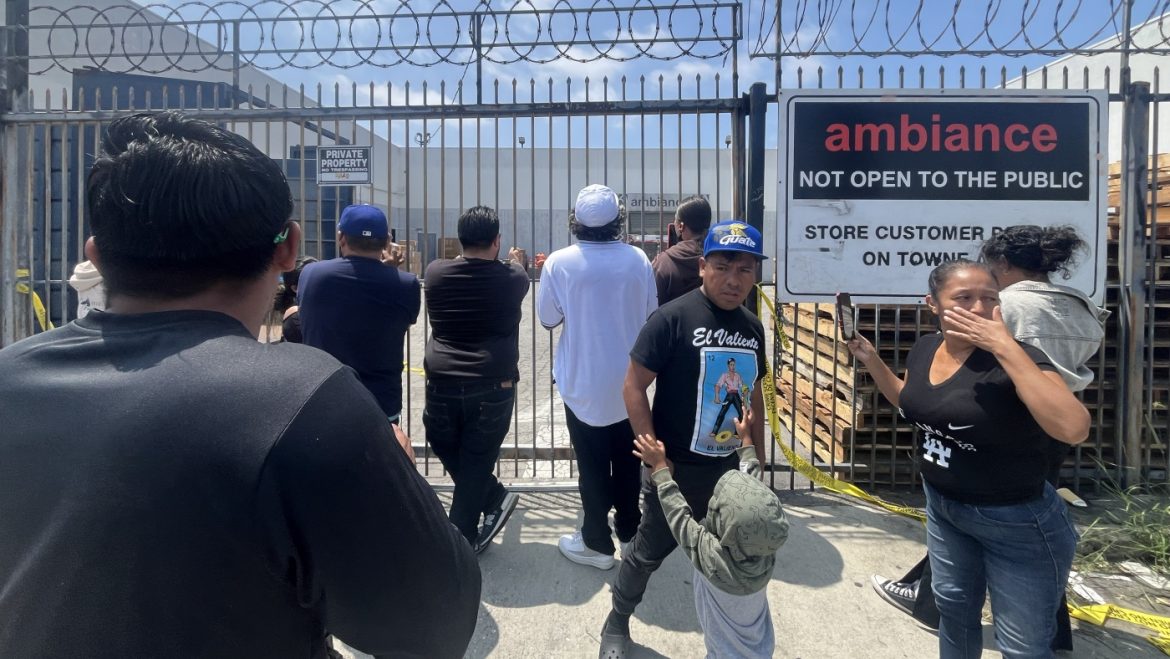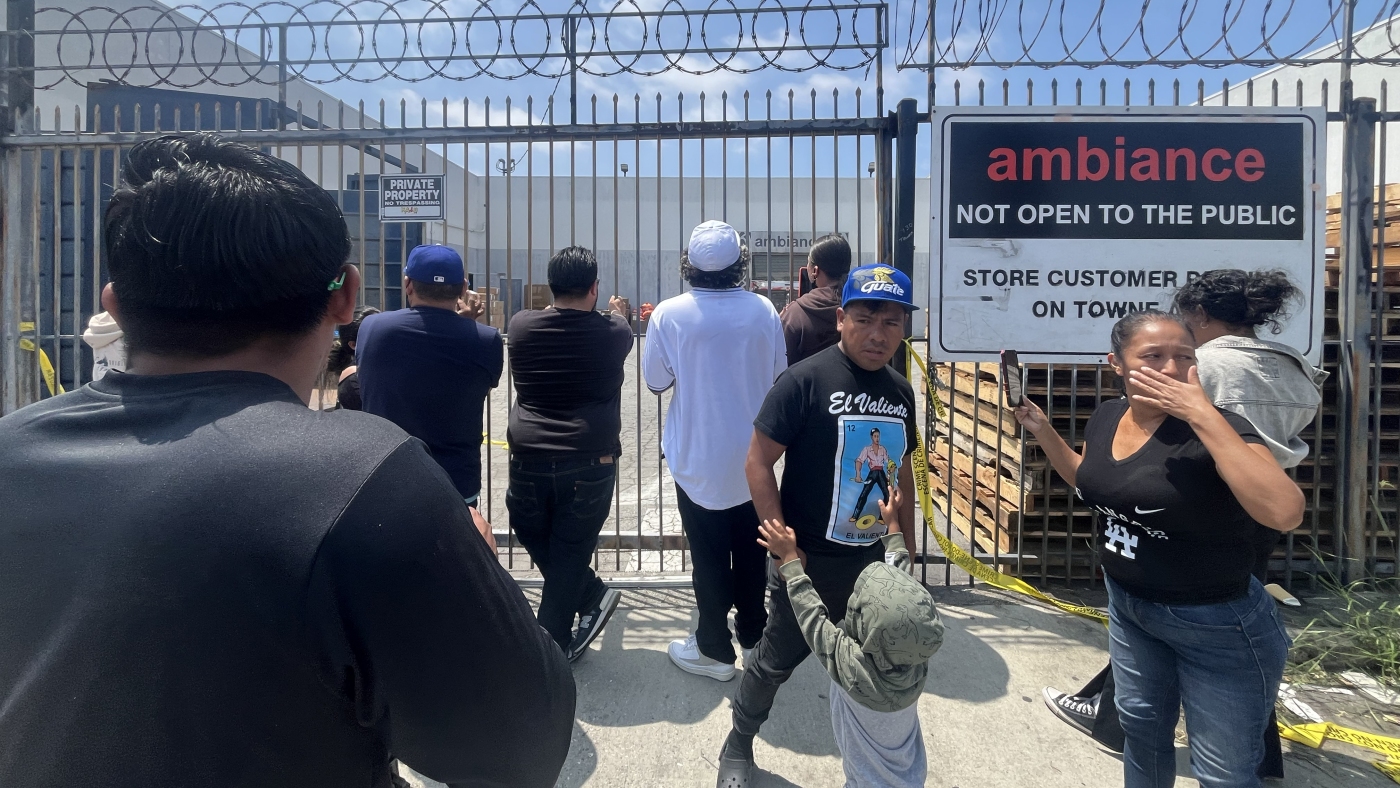The Unseen Aftermath: ICE Raids in Los Angeles
The bustling streets of Los Angeles recently bore witness to a series of ICE raids that sent ripples of fear and uncertainty through its immigrant communities. Beyond the immediate headlines detailing arrests and detentions lies a more profound and heartbreaking story: the desperate plight of families left behind, grappling with unanswered questions and the agonizing absence of their loved ones. This report delves into the human cost of these operations, exploring the challenges faced by families, the community’s response, and the broader implications of these actions.
A Community Under Siege
The raids, which targeted workplaces and even areas near schools, have created a climate of fear within Los Angeles’s immigrant communities. One location particularly affected was the Fashion District in downtown LA, where approximately two dozen employees of Ambiance Apparel, many with ties to the indigenous Zapotec town in Veracruz, Mexico, were detained. These raids weren’t isolated incidents; they formed part of a larger operation that led to dozens of arrests across the city.
The impact extends far beyond statistics. The abrupt removal of individuals, often key providers and caregivers, has destabilized households, leaving families struggling to cope emotionally and financially. The emotional distress is palpable, as illustrated by the account of Gonzalez’s family, where his mother is reportedly “beside herself,” and his sister is desperately seeking information about his whereabouts. These personal stories highlight the profound human suffering that follows in the wake of such large-scale enforcement actions.
The Silence is Deafening: The Agony of Uncertainty
A recurring theme across multiple reports is the agonizing inability of families to locate or communicate with their detained loved ones. This lack of access to information amplifies their distress, leaving them feeling helpless and lost in a bureaucratic maze. The phrase “whereabouts unknown” echoes repeatedly, underscoring the Kafkaesque experience of battling a system that seems indifferent to their plight.
Lawyers and advocates have described the situation as akin to “kidnapping,” highlighting the sense of desperation and powerlessness felt by families. This comparison underscores the perceived lack of transparency and due process, painting a picture of a system that prioritizes enforcement over basic human rights and compassion. The simple act of saying “I love you” became a poignant moment of farewell for one daughter as she witnessed her father being detained, a stark reminder of the emotional trauma inflicted on families.
Echoes of Protest and Resistance
In the face of these raids, the community has rallied in protest, demanding the release of detained individuals and an end to what they view as unjust and harmful immigration policies. Demonstrations have erupted across Los Angeles, including outside Ambiance Apparel, where families gathered to voice their anguish and call for action.
The response extends beyond affected families. Labor leaders, such as Service Employees International Union California President David Huerta, have joined the protests, sometimes facing arrest themselves. These acts of solidarity reflect a growing awareness of the social and economic impacts of immigration enforcement and a determination to resist policies that threaten the fabric of the community. The League of United Latin American Citizens has called for investigations into ICE’s practices, further demonstrating the widespread concern and desire for accountability.
Political Reactions and the Broader Context
The ICE raids have also drawn strong reactions from local and state political leaders. Los Angeles Mayor Karen Bass has expressed concern that her city is being used as a “test case,” potentially indicating a shift towards more aggressive immigration enforcement tactics. California Governor Gavin Newsom has directly criticized the federal government, attributing the “chaos” to the Trump administration’s policies.
These statements underscore the deeply divisive nature of immigration policy and the growing tension between state and federal authorities. They also highlight the potential for these raids to exacerbate existing anxieties and divisions within the community, further eroding trust in government institutions.
Scars That Linger: The Long-Term Consequences
The immediate aftermath of the ICE raids is marked by fear, confusion, and separation. However, the long-term consequences are likely to be even more far-reaching. Children who witness the detention of a parent may suffer lasting psychological trauma. Families may face economic hardship as they struggle to replace lost income and navigate the legal system. The emotional scars of these raids may linger for years, eroding trust and creating a sense of insecurity within the community.
The impact extends beyond individual families. Businesses may face labor shortages as workers fear returning to their jobs. The community as a whole may experience a decline in social cohesion as individuals become more isolated and distrustful. By targeting vulnerable populations, these raids risk undermining the social and economic well-being of the entire city.
A Call for Compassion and Justice
The stories emerging from Los Angeles serve as a stark reminder of the human cost of immigration enforcement. While the debate over immigration policy often focuses on abstract concepts and statistics, the reality on the ground is one of shattered families, broken dreams, and widespread fear. The desperation of families searching for their loved ones underscores the urgent need for greater transparency, accountability, and compassion within the immigration system.
The community’s response – the protests, the acts of solidarity, and the calls for justice – offer a glimmer of hope. They demonstrate the resilience and determination of people to stand up for their rights and protect their families. As the dust settles in Los Angeles, the challenge remains to build a more just and humane immigration system that respects the dignity and rights of all individuals, regardless of their immigration status.


